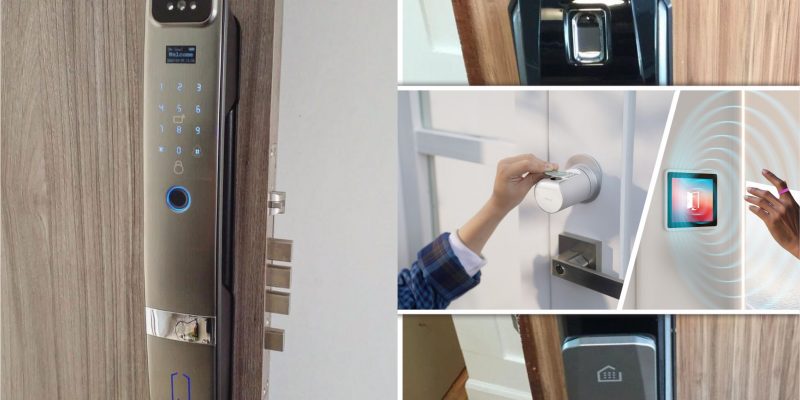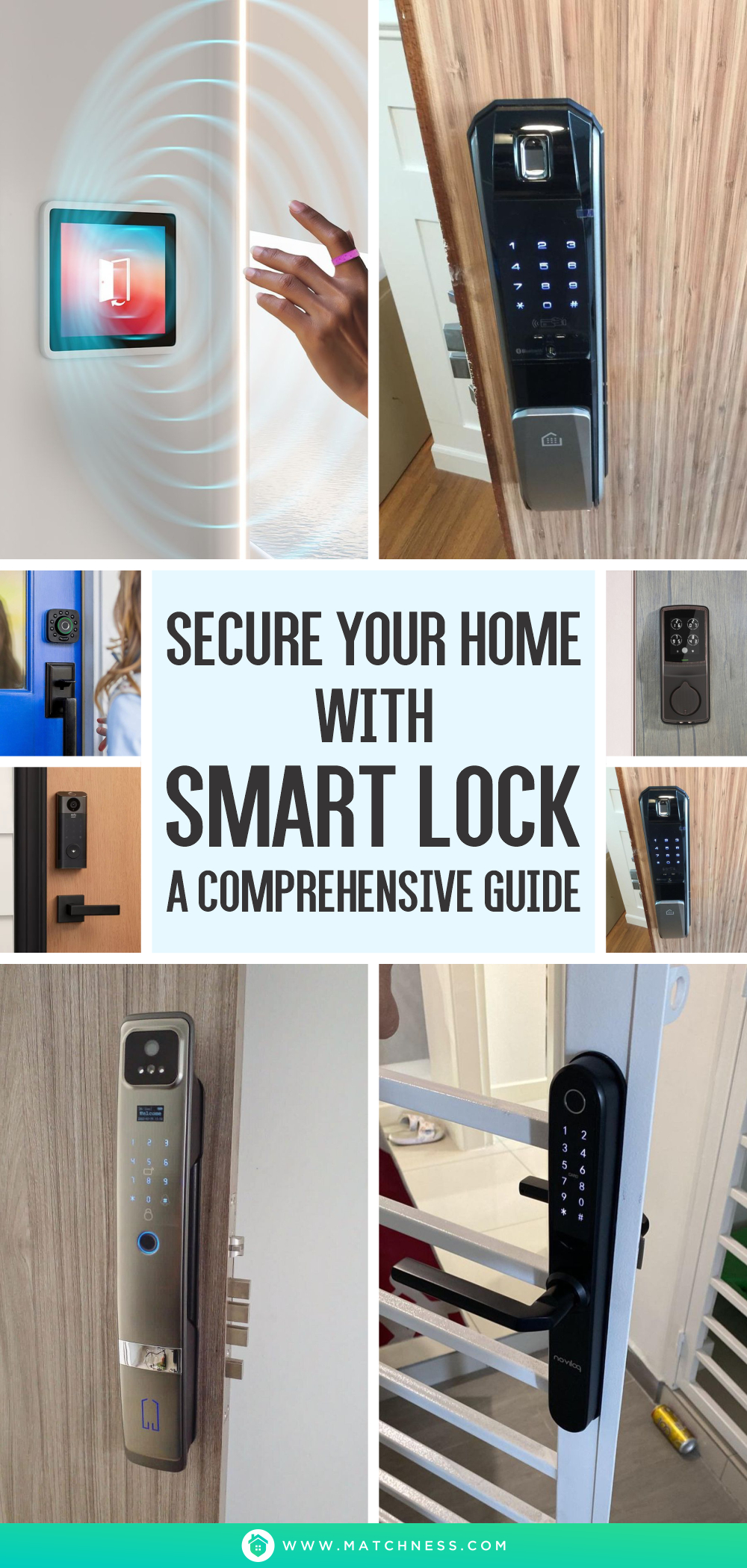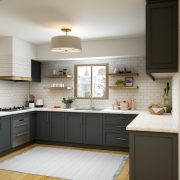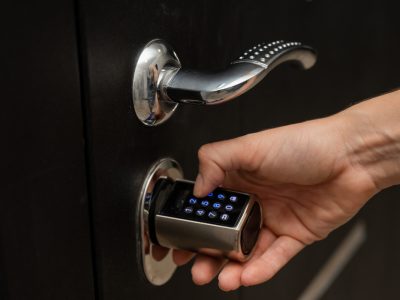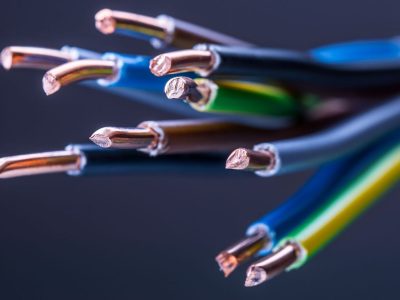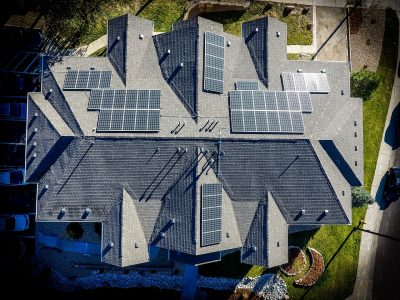Raise your hand if you haven’t installed a smart lock in your home! Smart locks offer not only the expected safety and security features of traditional door locks but also aesthetic appeal, user-friendly interface, and a range of additional features, making them an essential component of any modern smart home.
Curb appeal is a crucial aspect of any home, as emphasized by listing agents and home builders. The first impression a potential buyer forms upon pulling up to the property can significantly impact their decision to buy. However, it’s worth considering what happens when the prospect exits their vehicle and approaches the front door.
In recent times, smart home devices have become an anticipated feature of new home acquisitions. As per a recent survey by Security.org, seven out of ten home buyers seek a smart home, and 78% are willing to pay extra for a property equipped with smart devices. The survey also revealed that “security and safety” topped the list of smart device categories. In the 2022 Z-Wave “State of the Ecosystem” report, smart locks ranked among the top three most sought-after smart home products, alongside smart light bulbs and Wi-Fi cameras.
The technology
Smart lock use various technologies to provide keyless entry, remote access, and control. Some common technologies used in smart locks include:
- Bluetooth: Many smart locks use Bluetooth technology to communicate with your smartphone, allowing you to control the lock remotely and receive notifications.
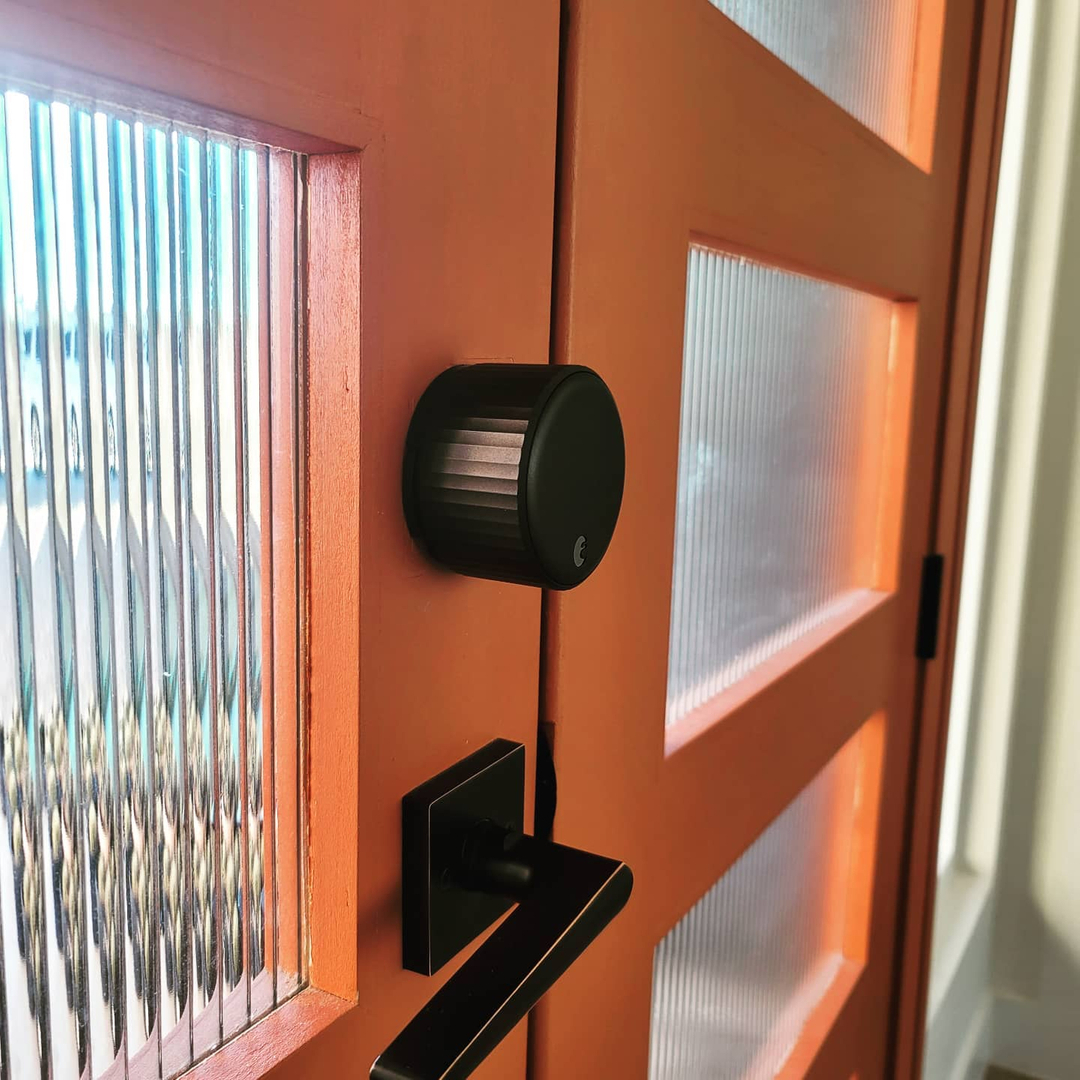
Smart locks are a secure, easy to install, and convenient way to control who can access your home. This is a key that can connect with blue tooth which will enlightened your home. Bluetooth Lock from @augusthomeinc
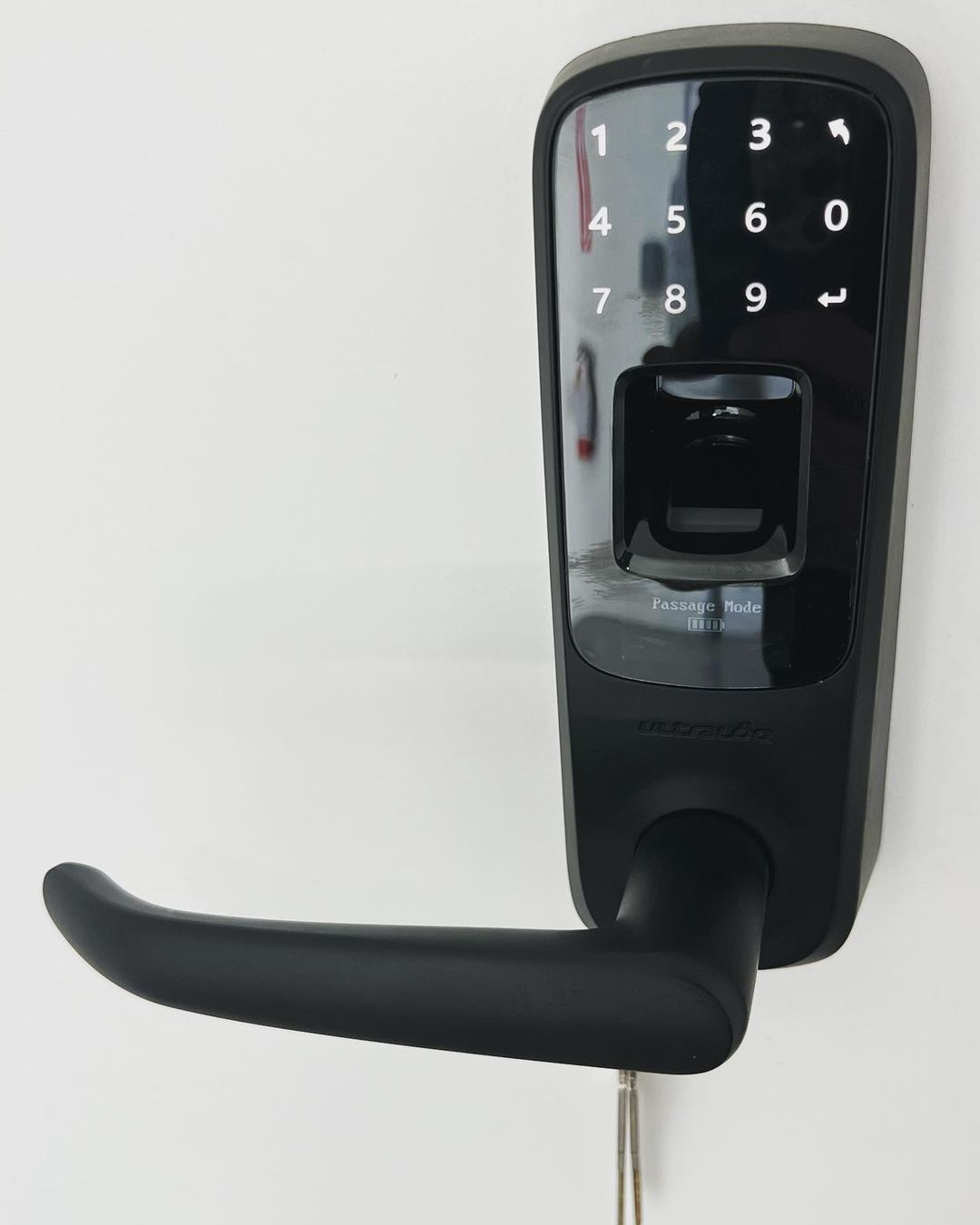
With this Smart Lock your house look sophisticated. This smart lock can be connected via cellphone, application, and website. Smart Lock from @macmediainc
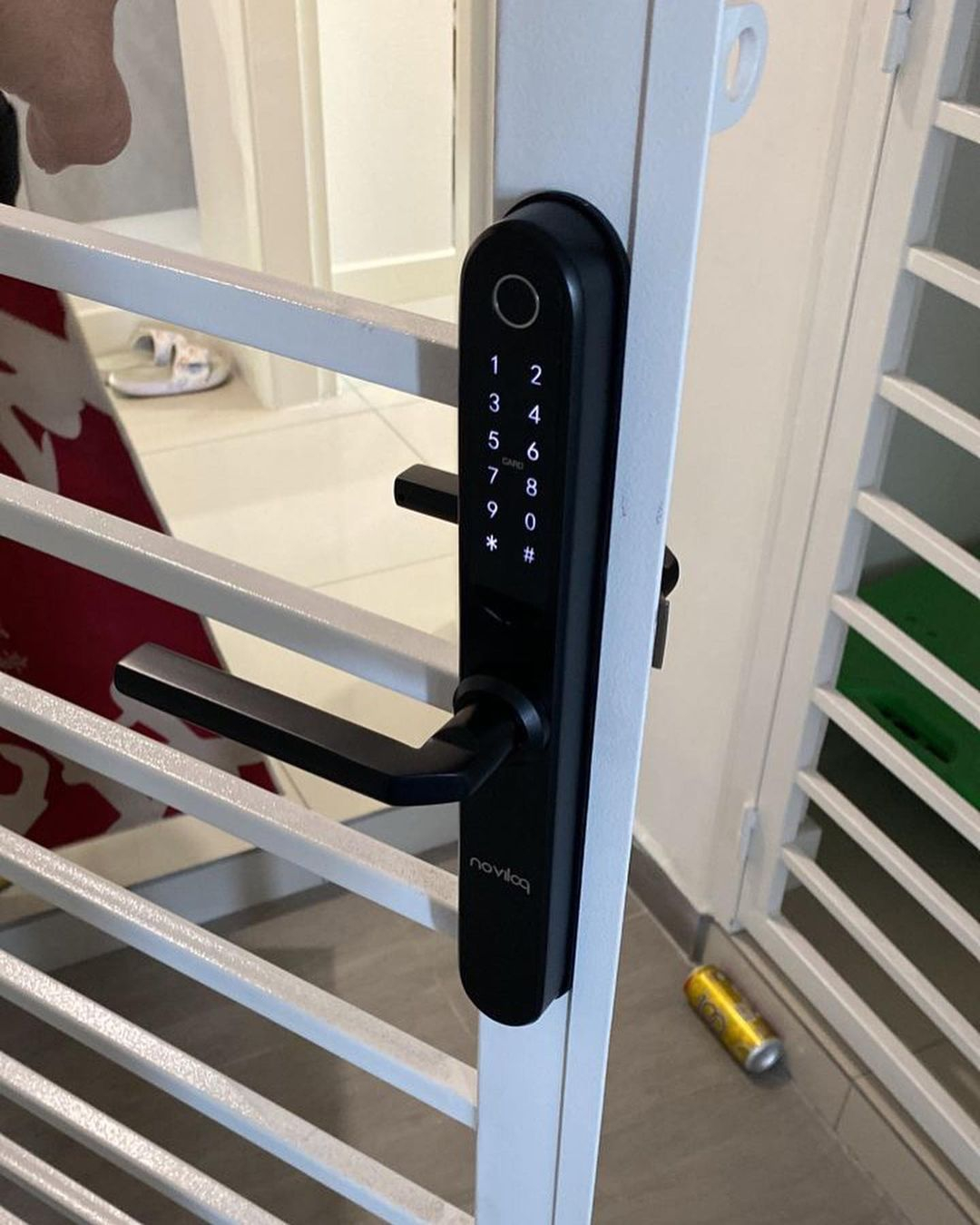
This Bluetooth Smart Lock makes locking the house easier. You can connect it via Bluetooth which will produce a perfect smart home design. Smart Lock Bluetooth from @smartlockmalaysia_official
- Wi-Fi: Some smart locks have built-in Wi-Fi, enabling you to connect them to your home network and control them from anywhere using a smartphone app.
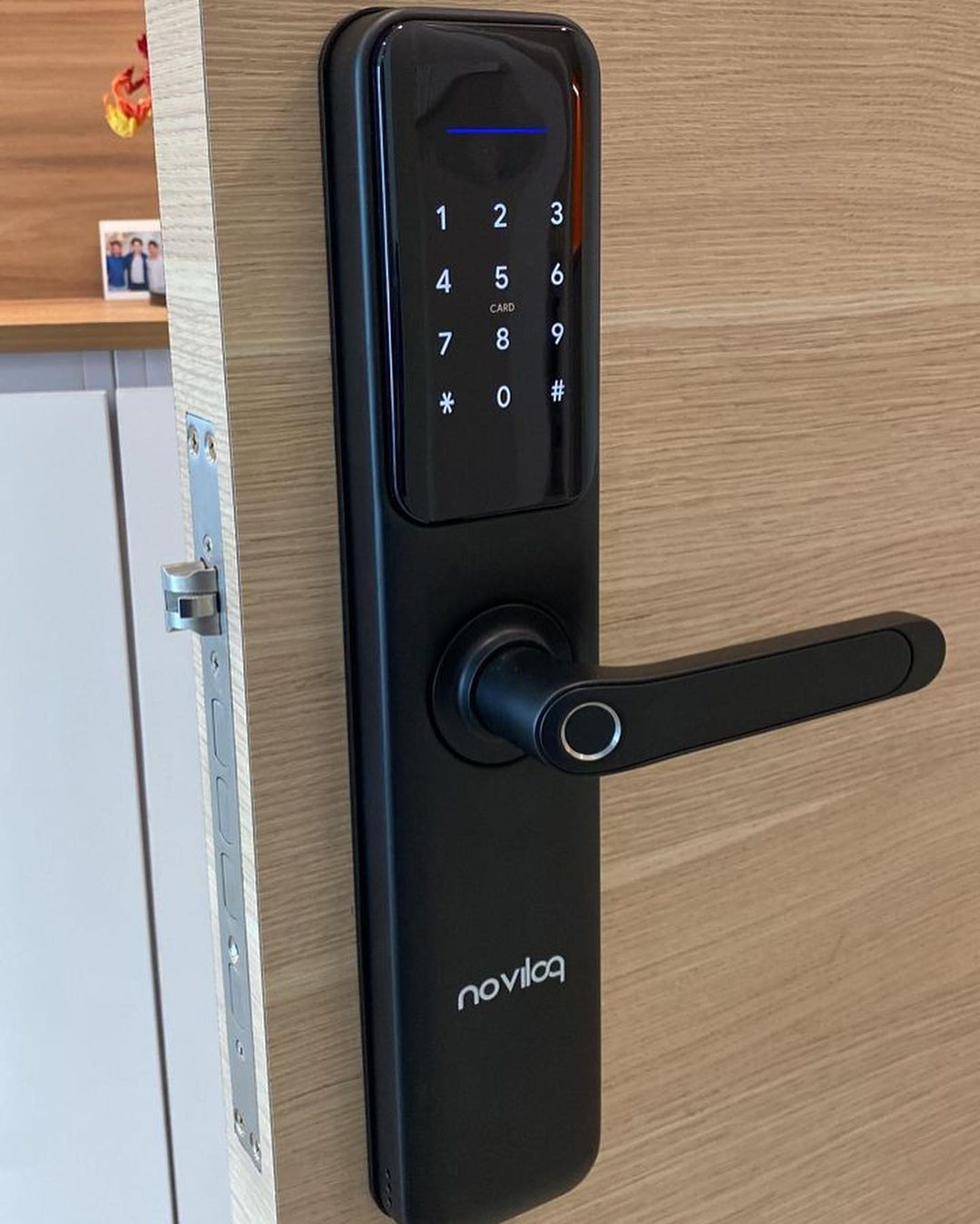
No more hassle of locating forgotten keys and replacing missing ones. No more frustration of accidental lock-outs. No more fumbling for keys. Wifi Smart Lock from @smartlockmalaysia_official
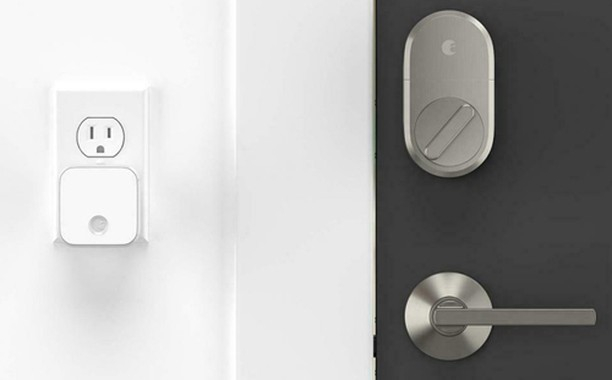
August smart lock known for providing security in more convenient way. Smart locks and video doorbells are available to keep your home and family safe and secure at all times. August Smart Lock from @allsmartlocks
- Z-Wave: Z-Wave is a wireless communication protocol used in smart home devices, including smart locks. It enables devices to communicate with each other and with a central hub or controller.
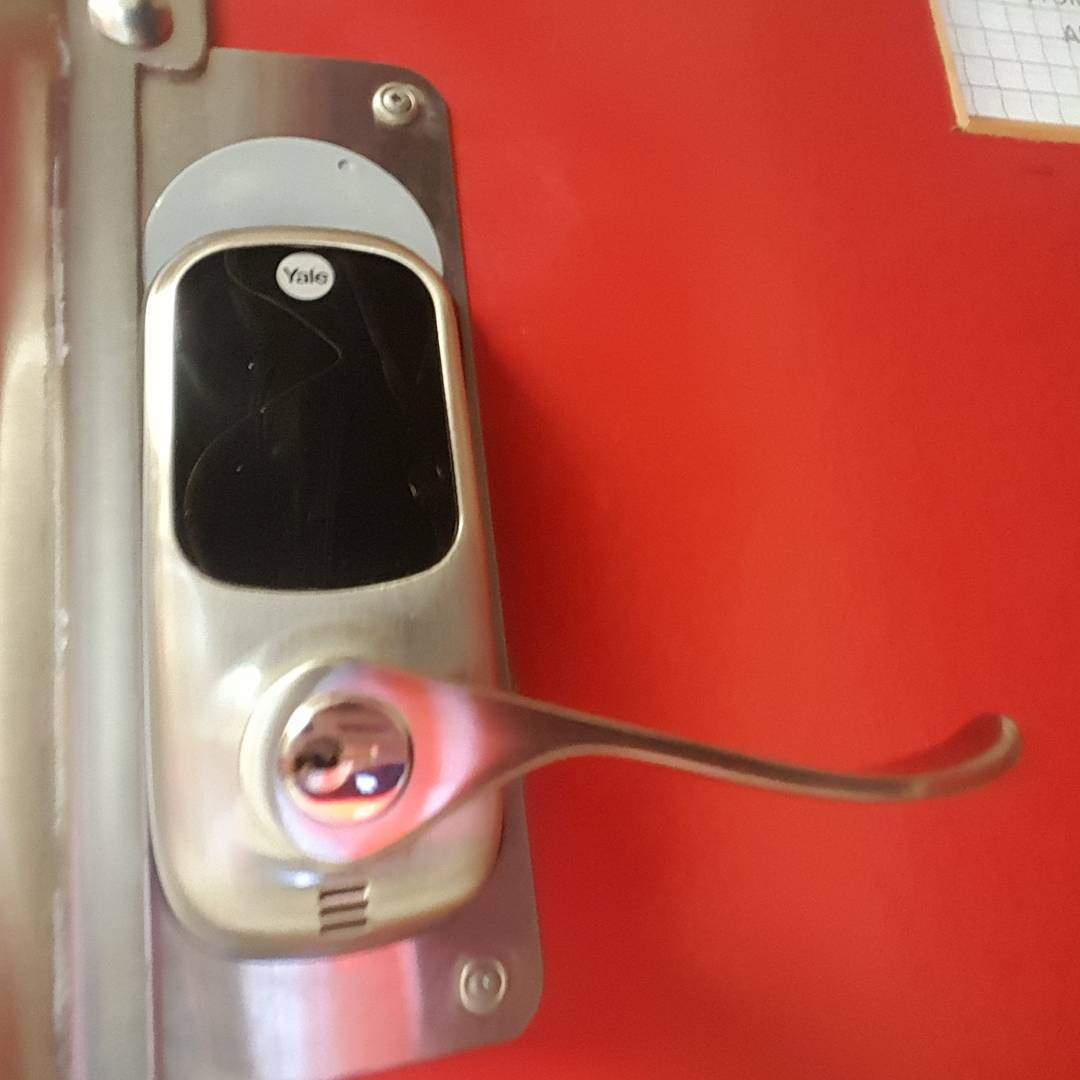
Z-Wave locks and smart wireless access systems are great additions to your Z-Wave home automation system. This lock will bring extra security, more convenience and better activity monitoring in your home. Z-Wave Smart Lock from @hbsecurity5362
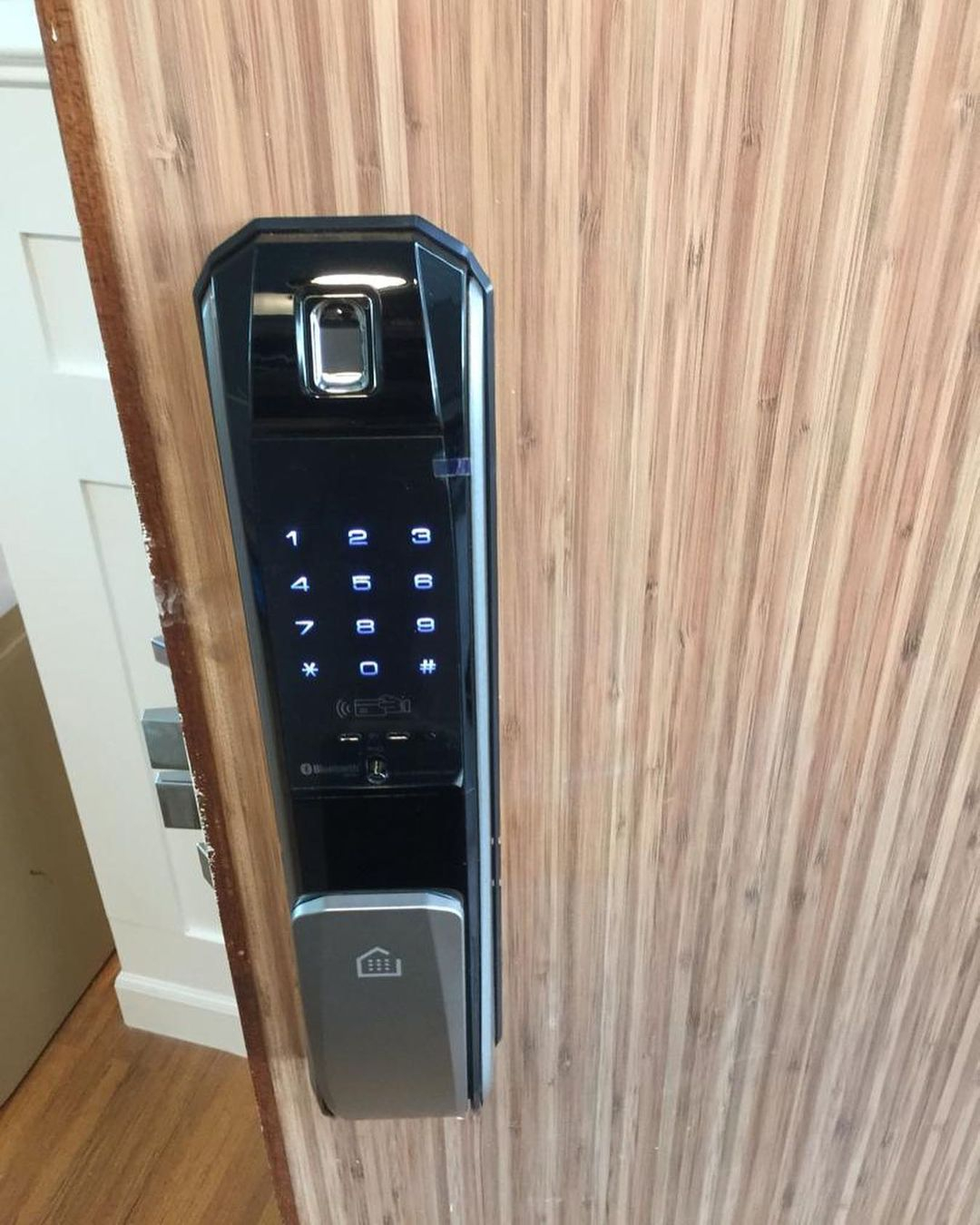
Smart locks are the most important part of your home. As well as allowing you to easily open and lock your doors, smart locks also monitor who enters and leaves your home while you are away. Wireless Smart Lock from @eagle_secure_tech
- NFC (Near Field Communication): NFC technology enables communication between devices within a short range, such as a smartphone and a smart lock. You can use your smartphone to unlock the door by holding it near the lock.
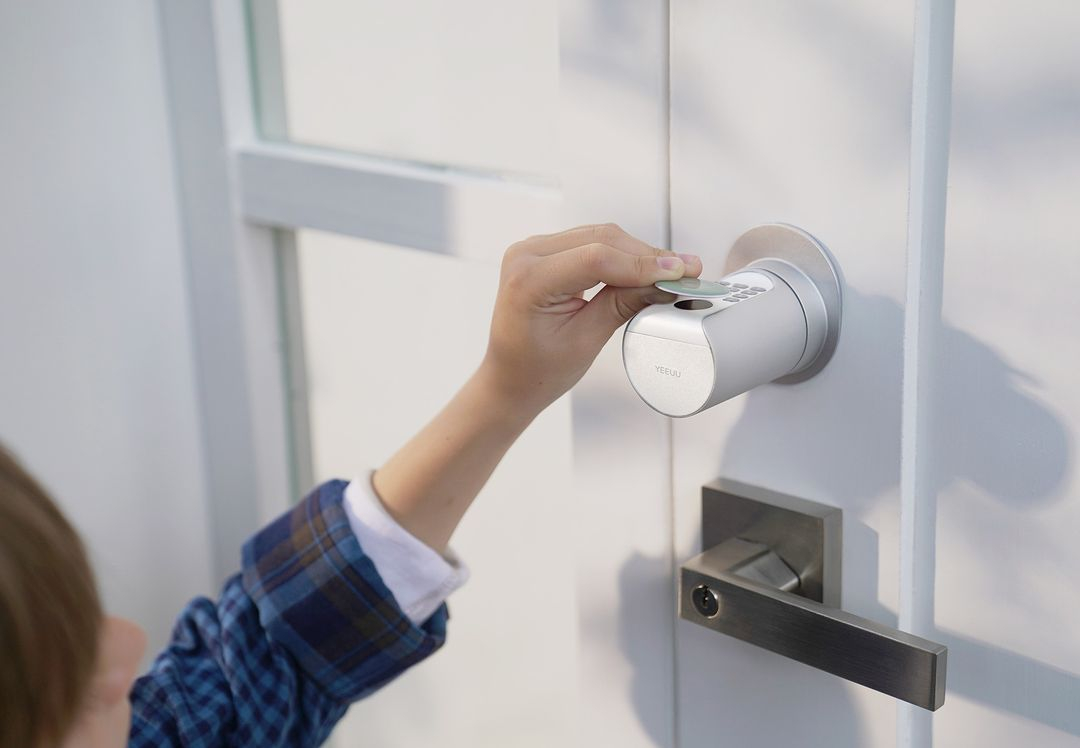
Smart Locks have an active NFC chip inside that requires a power source. This type of smart lock will give you a sophisticated look that you can try now. NFC Smart Lock from @yeeuu_lock
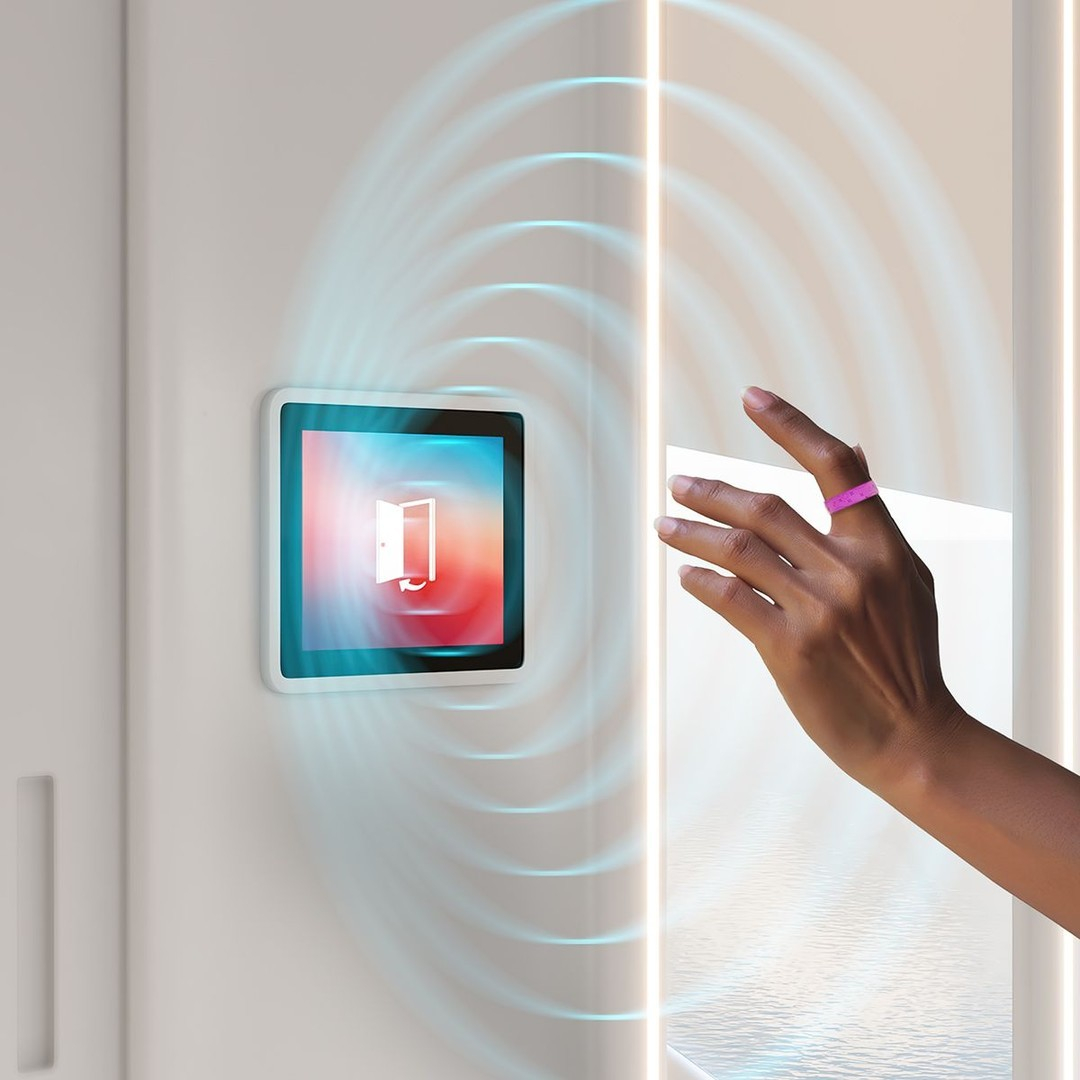
This smart lock system has a sleek appearance. It create a sophisticated home décor and provides extra security. Smart Lock System from @ocean_builders
- Biometric Authentication: Some smart locks use biometric authentication, such as fingerprint or facial recognition, to provide access control.
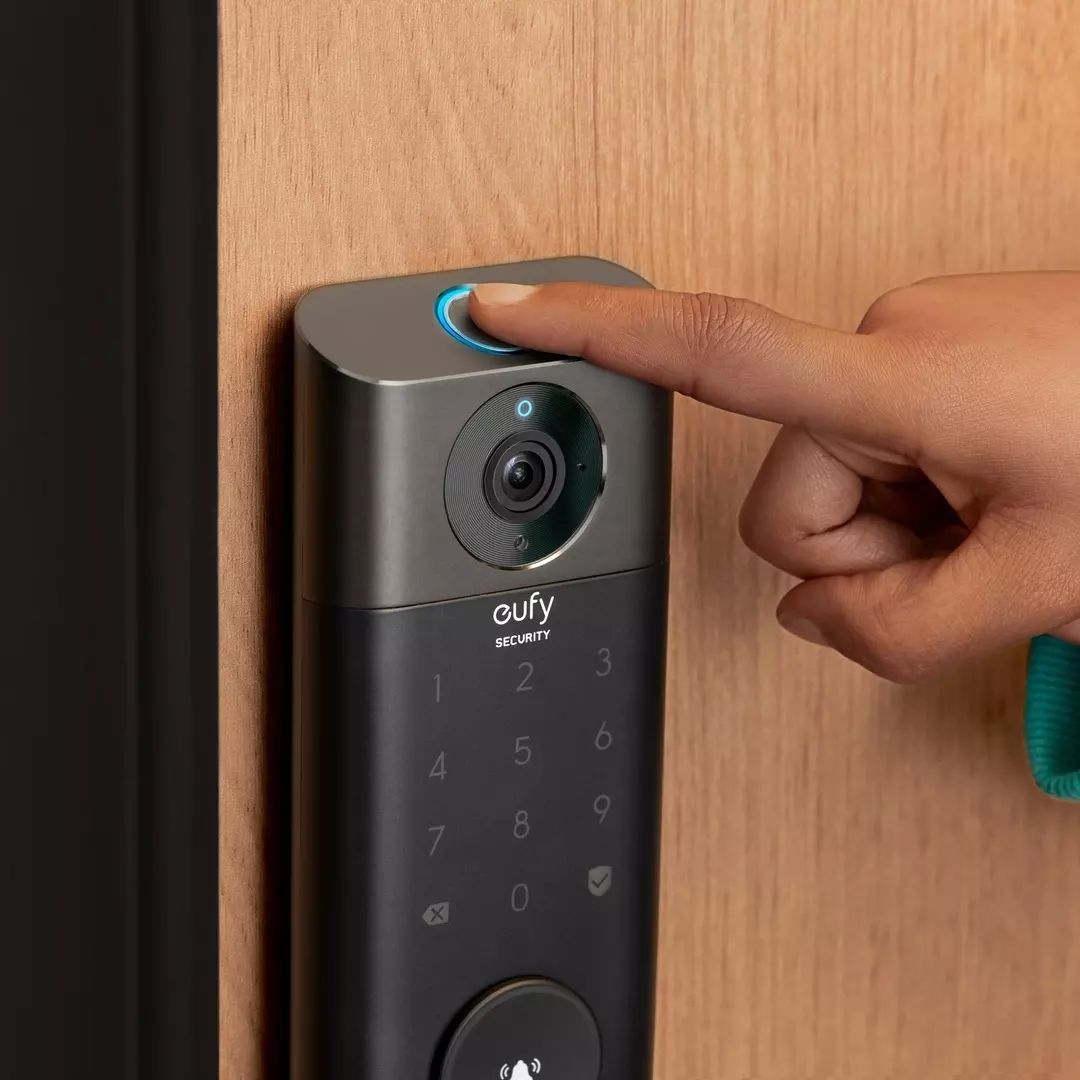
This smart lock has a video feature that will make it easier for you to see who has entered your home. Monitoring using this cellphone will also produce a sophisticated home design that you can try now. Vidio and Smart Lock from @myeufy.official
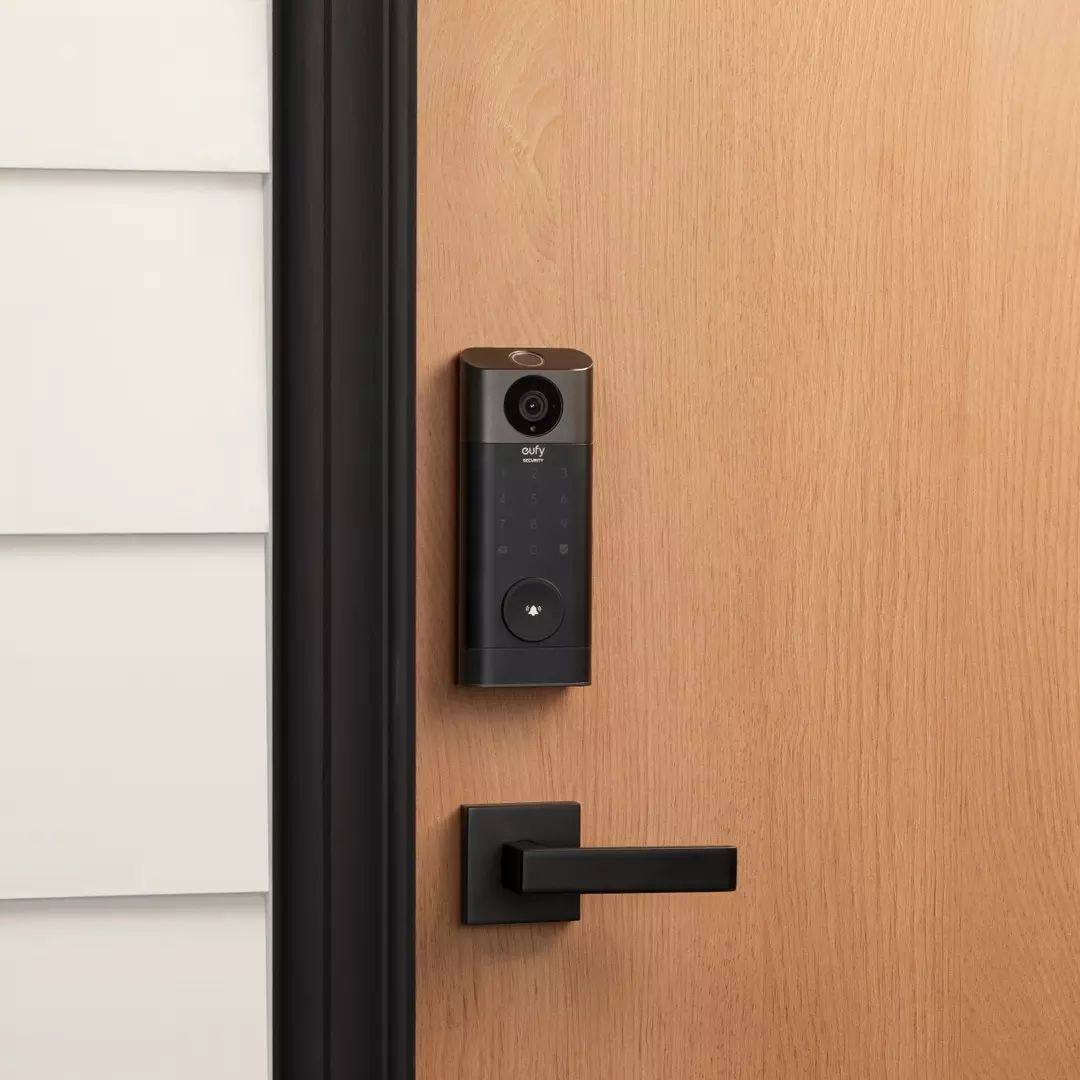
This smart lock with Biometric Authentication has a fingerprint on top. You can apply this smart lock on your entry door to give your home a sophisticated design. Biometric Authentication from @myeufy.official
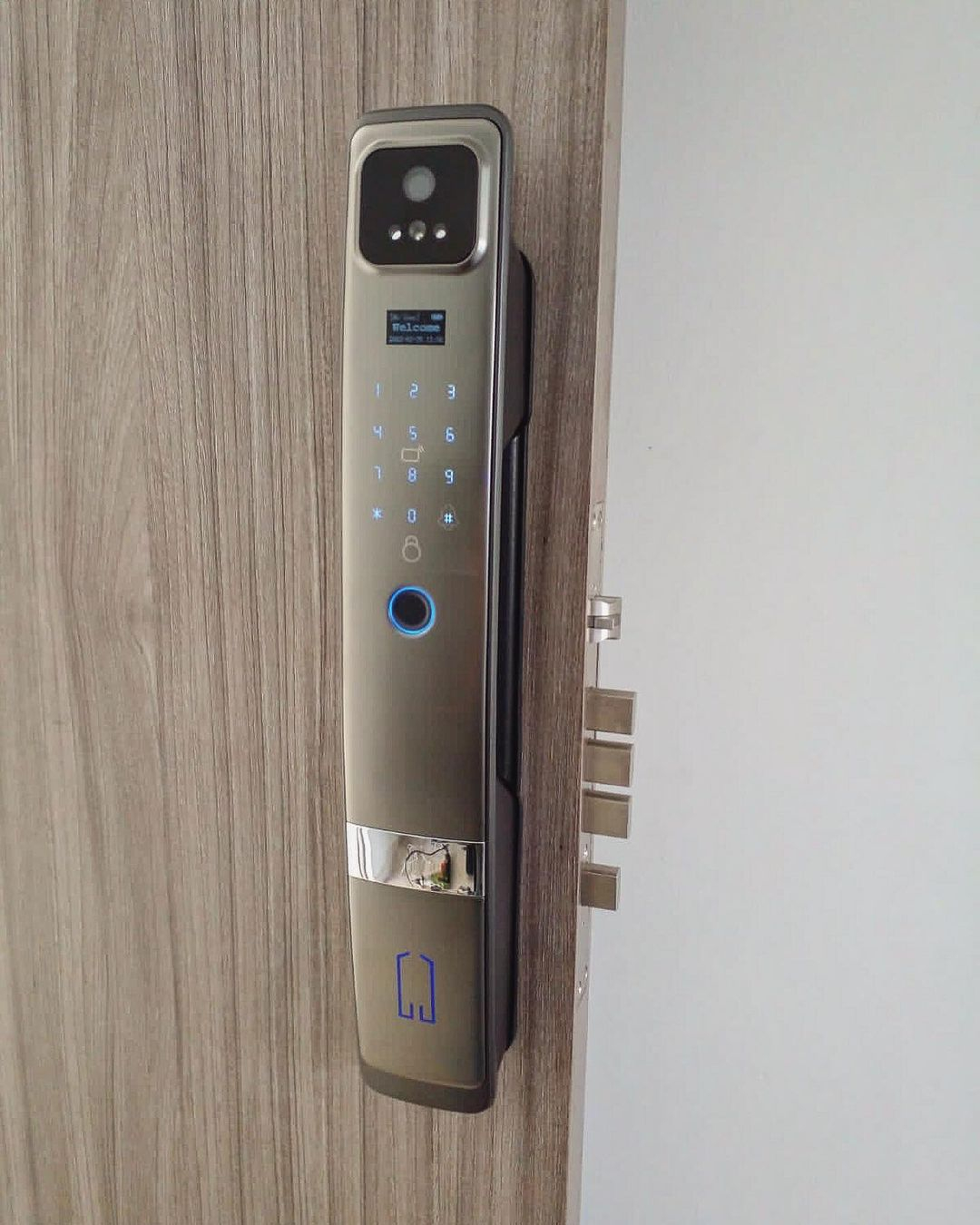
The smart lock on this house use a finger print which will give you a sophisticated look. This smart lock design looks sleek and has the perfect home door design. Finger Print Lock from @homeconnectionsas
- Voice Control: Many smart locks support voice control through integration with virtual assistants like Amazon Alexa or Google Assistant.
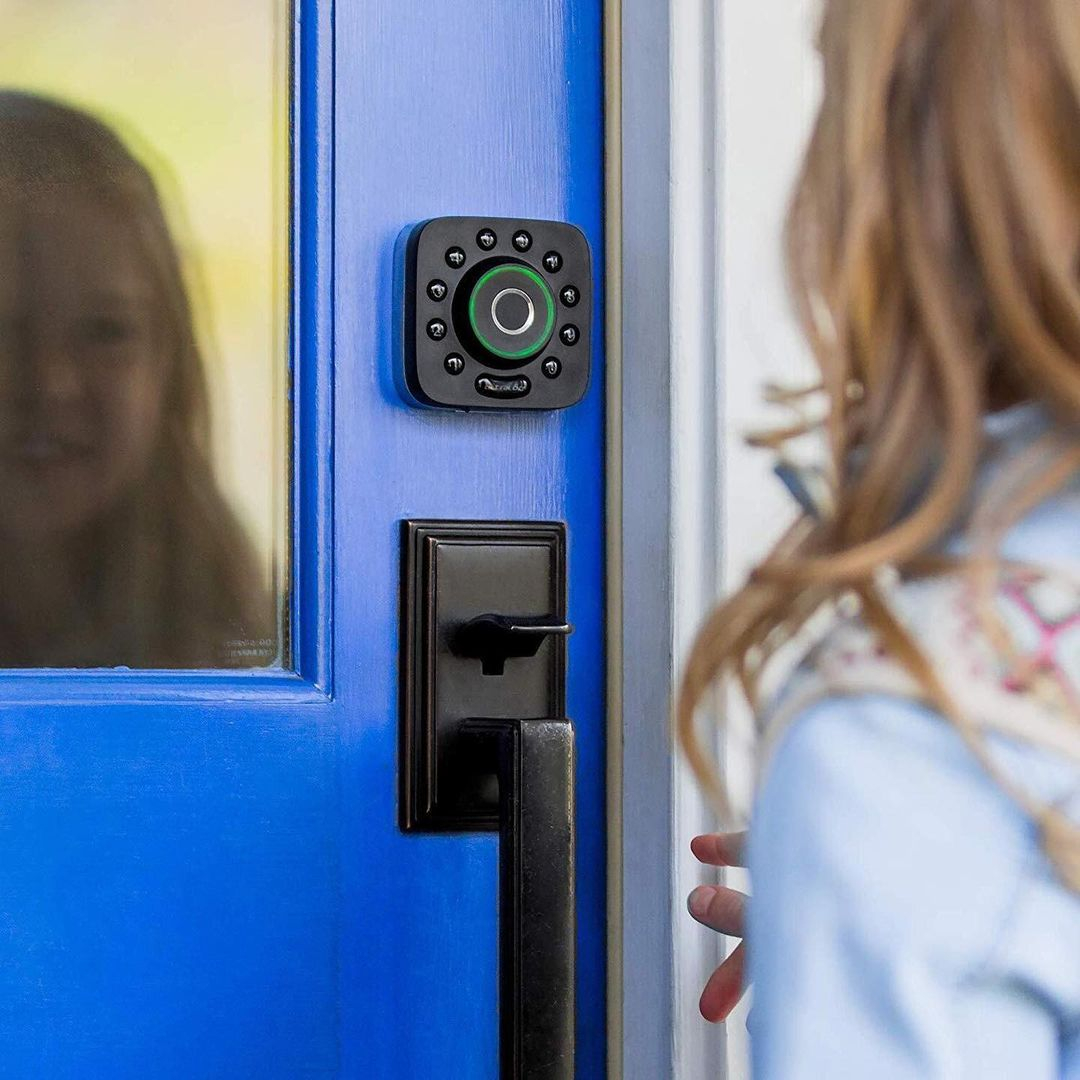
This smart lock has advanced security features that you can try now. This smart lock supports voice control through integration with virtual assistants such as Amazon Alexa or Google Assistant. Smart Lock Voice Control from @wellbots
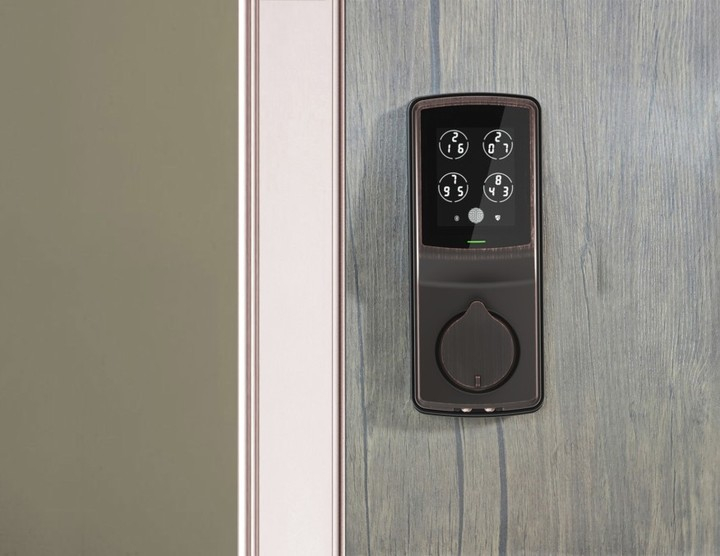
Apart from offering several advanced features, these locks also provide increased security and convenience compared to traditional locks. Having this voice control feature will give your home a sophisticated look for you to try. Smart Locking Voice from @meetlockly
Besides offering some advance features, they also provide enhance security and convenience compared to traditional locks.
Why smart locks become so popular?
Smart locks offer several benefits that make them an important component of modern homes. Here are some reasons why smart locks are essential:
- Convenience: Smart locks provide a convenient way to enter and exit your home without the need for physical keys. You can control them remotely, use voice commands, or even set them to unlock automatically when you approach the door.
- Enhanced Security: Smart locks offer more security features than traditional locks, such as keyless entry, remote monitoring, and alerts that notify you when someone enters your home. Some models also offer unique passcodes for family members, guests, or service providers, enabling you to keep track of who enters your home and when.
- Integration with Other Smart Home Devices: Smart locks can be integrated with other smart home devices such as security cameras, doorbells, and home automation systems, providing a seamless and convenient user experience.
- Improved Aesthetics: Smart locks come in various styles and finishes, allowing you to choose one that matches your home’s aesthetic and enhances its curb appeal.
Overall, smart locks offer a high level of convenience, security, and flexibility, making them an important component of modern homes. While smart locks offer several benefits, they also have some disadvantages. Here are some cons of smart locks:
- Reliability: Smart locks rely on electronic components that can fail or malfunction, leaving you locked out of your home or unable to lock your doors.
- Power Outages: Smart locks require power to function, and if there is a power outage, you may not be able to enter or leave your home.
- Hacking: Smart locks are susceptible to hacking, and if someone gains access to your lock, they can enter your home without a physical key.
- Cost: Smart locks can be expensive, especially if you opt for high-end models with advanced features.
- Compatibility Issues: Some smart locks are not compatible with certain smartphones or home automation systems, which can limit their functionality.
- Complexity: Smart locks can be more complex to install and set up than traditional locks, requiring professional installation or technical expertise.
- Privacy Concerns: Smart locks collect data about your comings and goings, which could raise privacy concerns for some users.
By considering these disadvantages, you can decide whether a smart lock is the right choice for your home and lifestyle. Do the advantages of smart locks justify their drawbacks? If your answer is yes, let’s move on to the next step!
Things to consider when selecting smart locks
When selecting a smart lock for your home, there are several things you should consider to ensure that you choose the right one. Here are some factors to keep in mind:
- Compatibility: Make sure that the smart lock you choose is compatible with your smartphone, home automation system, and other smart home devices you have.
- Connectivity: Consider the type of connectivity you want for your smart lock. Bluetooth-enabled locks have a shorter range than Wi-Fi-enabled ones, which may be more suitable for remote access.
- Power Source: Smart locks can be battery-powered or hardwired. Battery-powered locks are easier to install but require frequent battery replacement, while hardwired locks require professional installation.
- Security Features: Look for a smart lock that offers robust security features, such as two-factor authentication, encryption, and tamper detection.
- Ease of Use: Choose a smart lock with a user-friendly interface that is easy to set up and use.
- Price: Smart locks are available at different price points, so consider your budget and choose a lock that offers the features you need at a reasonable price.
- Design: Smart locks come in different styles and finishes, so choose one that matches your home’s aesthetics.
By considering all of those factors, choosing a smart lock that meets your needs and enhances your home’s security and convenience will not a big deal for your anymore, right?


